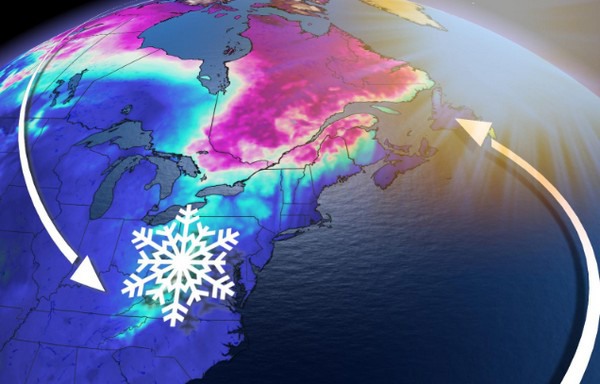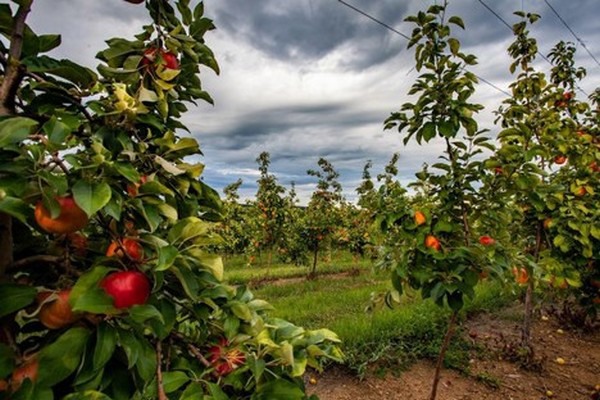Friday, February 3, saw a Polar Vortex, or arctic air, drop on and move through North America's East Coast, with temperatures plummeting in many areas. A number of states were affected by record-breaking temperatures, including Connecticut, Massachusetts, New York, Michigan, and more. In Canada, provinces such as Ontario, New Brunswick, Nova Scotia, and others were affected by what The Weather Network called the World's Coldest Air.
 The Weather Network dubbed the freeze as the "World's Coldest Air." Photo: The Weather Network.
The Weather Network dubbed the freeze as the "World's Coldest Air." Photo: The Weather Network.
Implications for produce?
So where did that leave growers and shippers moving product? "People went shopping ahead of the cold front like if it was a snow storm, so some stores' inventories fell to lower levels than expected," said Camilo Penalosa of Infinite Herbs & Specialties, which has operations in Vineland, New Jersey, and Chelsea, Massachusetts amongst other locations. "We flew product in, but airports were not prepared to handle produce at those temperatures, and we saw the damage of sensitive herbs such as basil."
He also adds that the freezing temperatures affected produce in some trucks as apparently the trucks' insulation wasn't made to stand such low temperatures.
 Ramsburg says the cold weather is welcome at this time of year to keep the trees in their dormancy stage.
Ramsburg says the cold weather is welcome at this time of year to keep the trees in their dormancy stage.
The upside of the cold
At Rice Fruit in Gardners, Pennsylvania, Brenda Briggs says the cold snap didn't disrupt any of its supply chains or cause disturbances within its servicing areas.
In fact, the cold was a bit of a plus. "When we're talking low temps, as an apple supplier, we welcome cold weather this time of year to keep the trees in their dormancy stage," says Briggs. "The trees need about 1,000-1,500 chilling hours during the winter months to rest up for the upcoming growing season."
For more information:
Infinite Herbs & Specialties
https://infiniteherbs.com/
Rice Fruit Co.
https://ricefruit.com/










